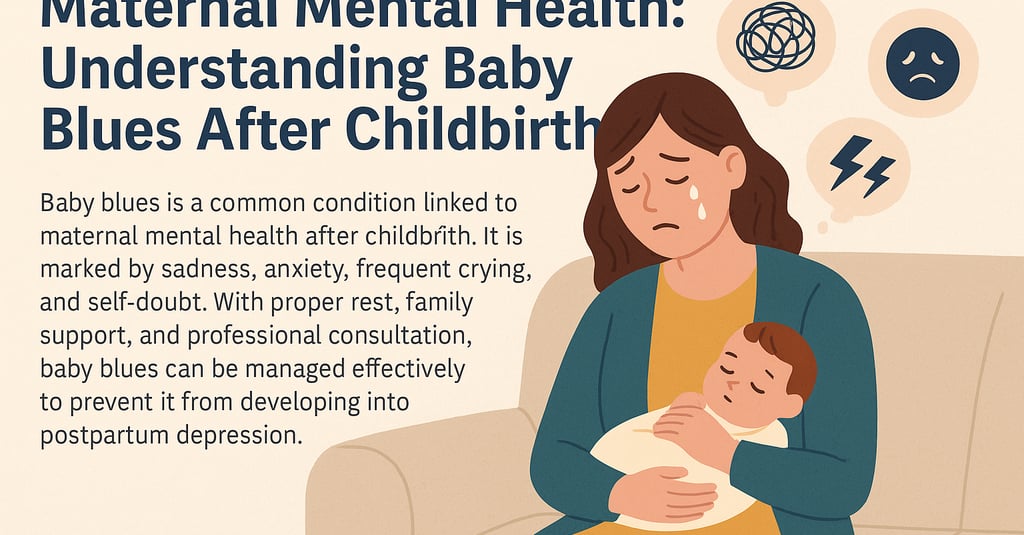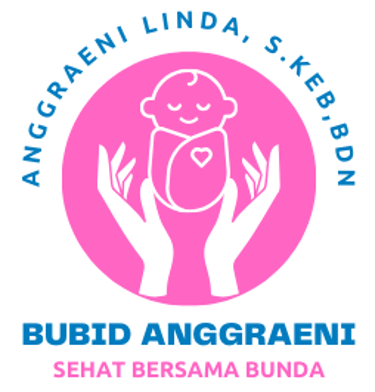Maternal Mental Health: Understanding Baby Blues After Childbirth
Baby blues is a common condition linked to maternal mental health after childbirth. It is marked by sadness, anxiety, frequent crying, and self-doubt. With proper rest, family support, and professional consultation, baby blues can be managed effectively to prevent it from developing into postpartum depression.
MATERNAL MENTAL HEALTH


What Is Baby Blues?
Baby blues is an emotional condition commonly experienced by mothers after childbirth, usually appearing within the first few days and lasting up to two weeks postpartum. It is characterized by feelings of sadness, frequent crying, irritability, anxiety, and self-doubt in caring for the baby. Baby blues are closely related to maternal mental health and should not be seen as a weakness, but rather as a normal reaction to the major changes a mother undergoes physically and emotionally.
Causes of Baby Blues
Some factors that may trigger baby blues include:
Hormonal changes after delivery.
Lack of sleep due to caring for the newborn.
Physical exhaustion from labor.
Psychological pressure from new responsibilities as a mother.
Limited support from partners or family members.
Symptoms of Baby Blues
Common signs include:
Crying easily without clear reasons.
Feeling sad, anxious, or excessively worried.
Irritability or mood swings.
Difficulty concentrating.
Lack of confidence in caring for the baby.
Impact on Maternal Mental Health
Although often considered temporary, baby blues can affect the quality of maternal mental health. A mother may feel overwhelmed and inadequate, which can hinder bonding with her baby. Without proper support, this condition may escalate into postpartum depression, which requires medical attention.
How to Cope with Baby Blues
While baby blues usually improve on their own, here are some steps that may help:
Get enough rest – Sleep when the baby sleeps to regain energy.
Communicate openly – Share your feelings with your partner or loved ones.
Seek family support – Involve your partner or family in baby care.
Practice self-care – Take short breaks for relaxation, a warm shower, or light walks.
Consult healthcare professionals – If symptoms worsen or last longer than two weeks, seek medical advice.
The Importance of Support
Maternal mental health is strongly influenced by the support system around the mother. Partners, family, and friends play an important role in providing comfort, reducing stress, and ensuring mothers do not feel alone during this transition period.
👉 Baby blues are a real and common phenomenon in maternal mental health after childbirth. With proper support and care, mothers can recover emotionally and physically.
✨ If you ever feel overwhelmed, don’t hesitate to consult Midwife Anggra for professional guidance on maternal health and newborn care.
